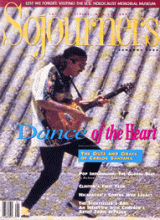The recent launching of MTV's Latin American network, MTV Latino, marks a new era in communications characterized by the concentration of control over the world's media outlets into the hands of fewer and fewer people. Viacom International's MTV is rapidly becoming a powerful force on this global communications scene, especially among young people. MTV Latino joins MTV Asia, MTV Japan, MTV Brazil, and MTV Europe (soon to be followed by MTV Africa) - a network that reaches 247 million homes in 88 countries.
MTV holds true to the first half of their appropriated motto, "think globally - act locally," while showing less concern for the second. According to a National Public Radio report, about three-quarters of the music on Spanish-language MTV Latino will come from "so-called Anglo musicians," and the network has on principle decided not to include the salsa, merengue, or cumbia rhythms or "any other more native Latin beat" that are traditionally heard and produced in the region. "It's not really a concern," says MTV president of business operations Sara Levinson. "We play rock and pop - that's what MTV is, it's a rock-n-roll music channel."
The Western powers (including Japan) control 90 percent of the world's information production and distribution services and have a virtual monopoly over products of mass culture. With the advent of mega-media "synergies," such as the recent Bell Atlantic-TCI merger, the number and scope of the cultural choices available to us are becoming increasingly limited - and more and more under the influence of the marketing and advertising concerns that bankroll these media giants.
The corporate beat can be felt through the new network. MTV Latino host and supermodel Daisy Fuentes is a worldwide spokesperson for the cosmetics firm Revlon, and Coca-Cola is sponsoring MTV Latino programming with its contextualized campaign, Siempre Coca-Cola ("Always Coca-Cola").
Read the Full Article
